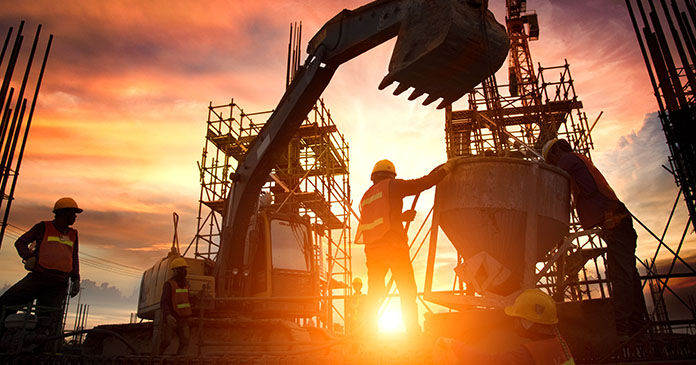A record 83 percent of multifamily developer respondents reported construction delays in the jurisdictions where they operate, according to the seventh edition of the National Multifamily Housing Council (NMHC) COVID-19 Construction Survey.
Of this group, 80 percent reported experiencing delays in permitting, up slightly from the 77 percent in round six and comparable to the results seen in the earlier rounds. Survey respondents reporting construction delays also indicated a significant pause in starts, with a similar 80 percent still reporting delayed starts over one year into the pandemic.
The main reasons cited for delays in starts were permitting, entitlement, and professional services (70 percent); projects not being economically feasible at this time (56 percent); and economic uncertainty (27 percent). The percentage of responses attributing delays to projects not being economically feasible at this time increased from 30 percent in round six to 56 percent this round.
“These findings highlight the deep challenges that builders and developers are facing as the economy continues to recover from the depths of the pandemic,” said Doug Bibby, NMHC President. “While we are encouraged by the overall prospects for the industry, skyrocketing construction costs and a lack of available labor makes it increasingly difficult and expensive for apartment homes to be built—worsening the affordability challenges facing communities across the country over the long-term.”
The NMHC Construction Survey is intended to gauge the magnitude of the disruption caused by the pandemic on multifamily construction. Additional findings include:
- 86 percent of respondents reported being impacted by a lack of materials, the highest share recorded since the survey began.
- Fully 100 percent of respondents reported price increases in materials, another record for the survey and up from 93 percent of respondents in the previous round. Of those respondents who saw price increases for materials, the average firm experienced a 38 percent price increase of the past 12 months for its most impacted materials.
- On average, respondents experienced a 201 percent price increase in lumber costs over the past year.
- Because of rising lumber costs, respondents have taken a variety of actions in response, including repricing projects (62 percent), making price-saving modifications/eliminations to other materials or fixtures (49 percent), and delaying the start of projects (39 percent).
- 47 percent of respondents reported they are impacted by labor constraints, up 11 percentage points from round six and up 27 percentage points from round five.
- 83 percent of respondents indicated that deals were priced up. Specifically, 69 percent of respondents indicated deals being priced up 5 percent or more, compared to just 14 percent of respondents reporting the same in the last round of the survey.
View the full survey results here and a comprehensive overview of the results here.












